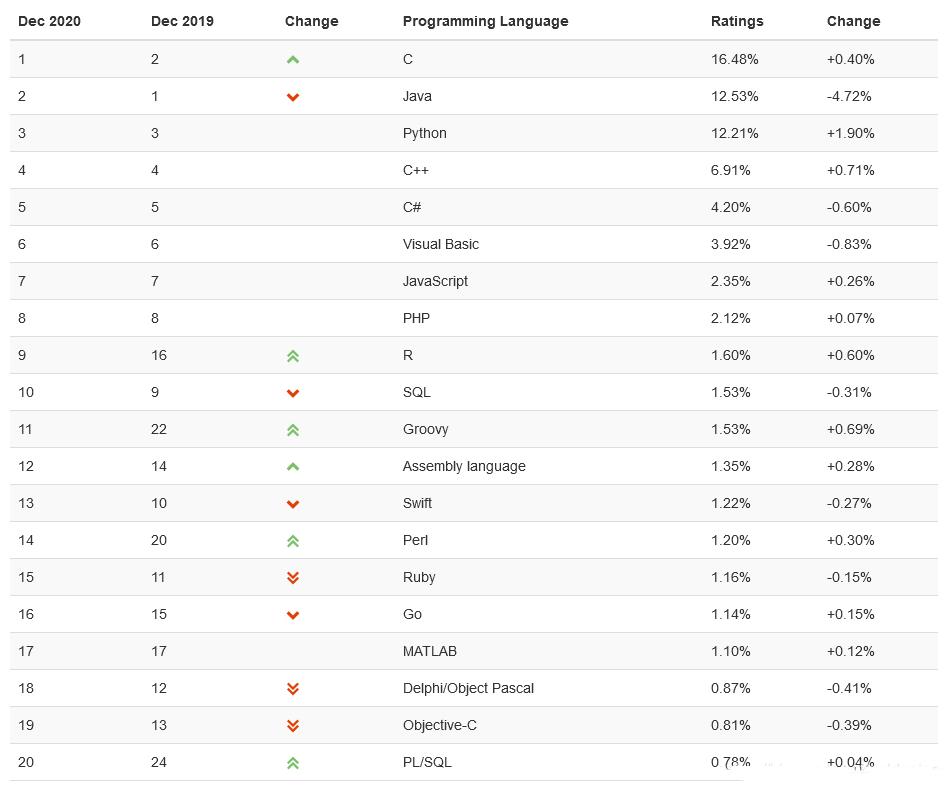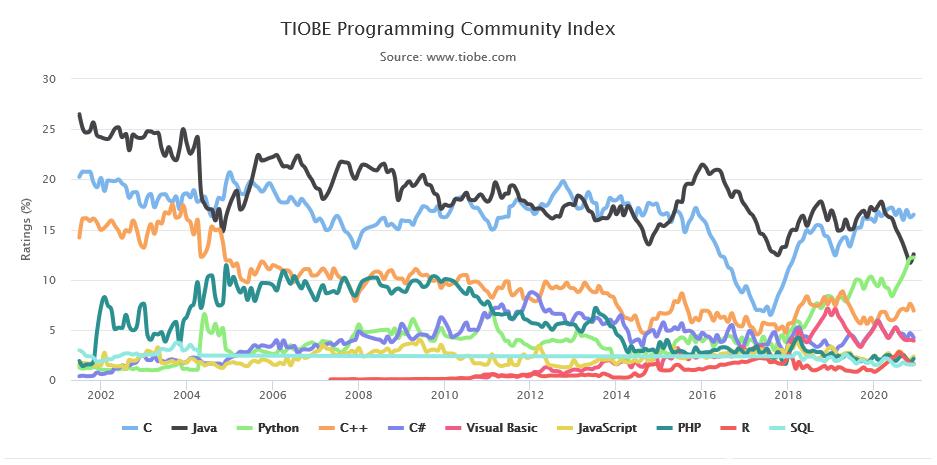
A few days ago, TIOBE has released the data of December 2020 in the ranking list of programming languages. The ranking of programming languages changed in December. Delphi is about to drop out of the top 20 in the TIOBE index. C language won the title of programming language of the year and continued to lead with a monthly growth rate of 0.40%. The monthly growth rates were higher for R (0.60%), Groovy (0.69%) and Perl (0.30%).

Overall, the top 10 languages are stable as usual. This month, R language has been in the top 10 all the way. In the same period last year, R ranked 18th. In the first two months of the list, R rose to 15. Then R's ranking continued to climb and entered the top 10 in December.
Delphi is a famous fast application development tool under Windows platform. Many developers used to describe powerful Delphi as "smart programmers use Delphi". According to TIOBE statistics, Delphi has been in the top 20. It is one of the most popular languages and IDEs. In 2002, with the release of BorlandDelphi7, it reached its peak.

Some wrong versions appeared due to the failure of Linux migration. Non-commercial IDE with similar functions began to erode the market. Delphi began to decline. The acceleration of this process is related to the frequency of Delphi's distribution. Since 2001, Delphi has released at least one major version every year. Today, the latest Delphi version is released in 2018.
Another focus of this new issue of the ranking is that Objective-C also continues to be in the doldrums and has reached 19th. It is about to drop out of the top 20. However, Google Dart language, which we have been paying close attention to, has risen to 68th place, but PHP is still stable at 8th place. In terms of monthly growth rate, although there is no improvement, it is not as disappointing as negative growth.
Since the Tiobe programming language ranking was released, C + + has occupied the third place except 1985. Although Perl, VisualBasic and PHP used to rank third, their retention time of up to a few months is not worth mentioning compared with C + +. However, compared with C + +, Microsoft's programming language C # is more promising. Some even think that C # is bound to replace C + +. Due to Microsoft's vigorous promotion, the number of people using C # is growing steadily. Veteran C + + is being forgotten. The first major revision of the C + + language in 13 years appears. C++11 was born just across the sky of the programming language. Perhaps it is because of this revised version that C + + has gradually won the initiative in the competition with C #. As can be seen from this December list, C + + has a higher ranking than C #, with a monthly growth rate of 0.71%. At the same time, competitor C # experienced a negative growth of-0.60%.
The above is the latest ranking of programming languages. Knowing the ranking of programming languages in real time will help you to define your learning goals and avoid detours in the learning process. In order to become an excellent programmer, it is necessary to pay close attention to these rankings all the time.